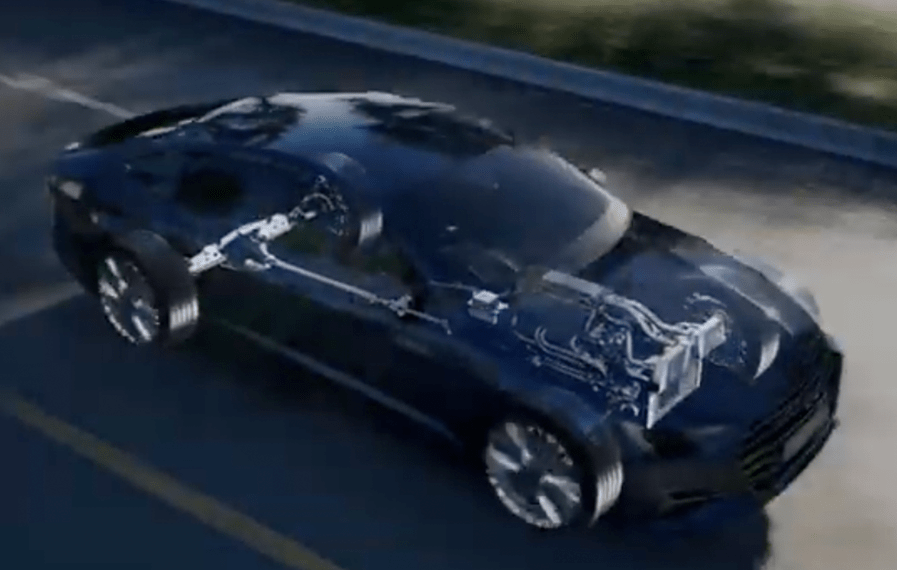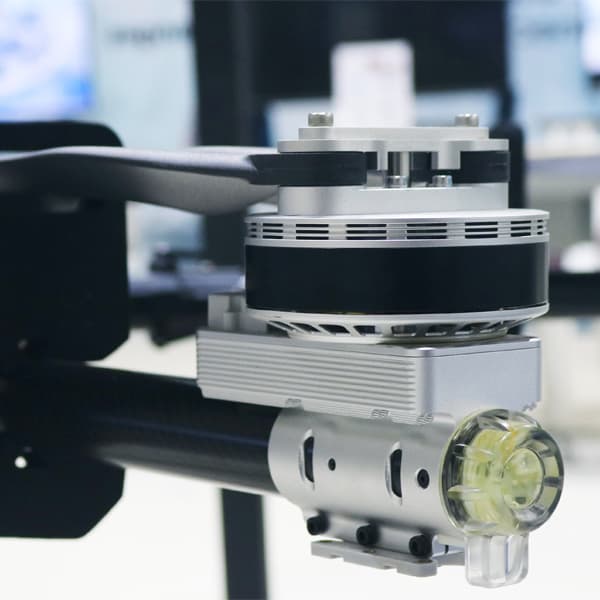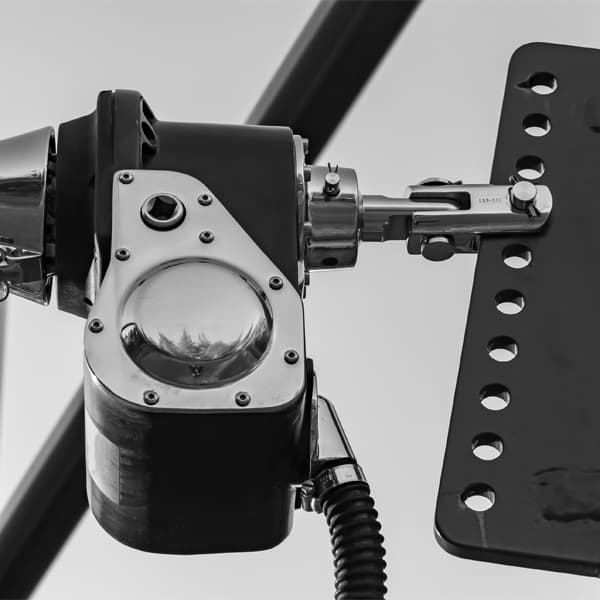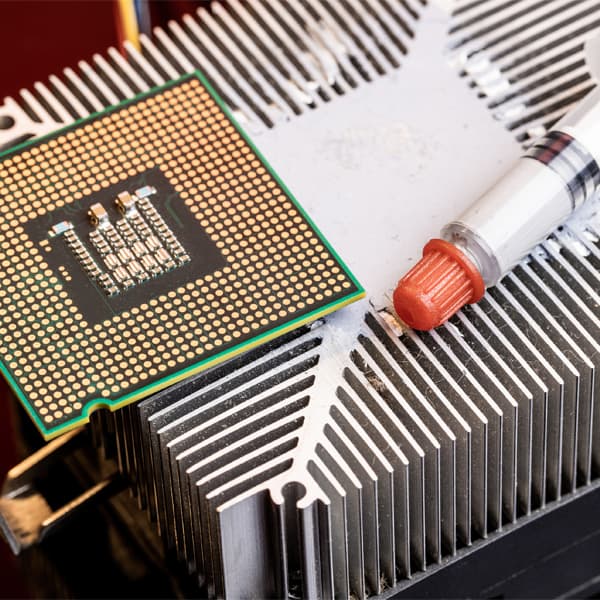What Industries Can Die-Casting Serve?

Industries Served by Die-Casting
1. Industrial Computers, Networking Equipment, and Surveillance Equipment
Aluminum die-casting is widely used in the production of enclosures and structural components for industrial computers, networking devices, and surveillance equipment. These components are often installed in harsh outdoor environments, which presents several challenges:
Impact Resistance:
Aluminum die-cast enclosures are highly durable and can withstand impacts, making them ideal for outdoor use where equipment may be subject to physical stress or rough handling.
Heat Dissipation:
Die-cast aluminum naturally has excellent thermal conductivity, which is crucial for devices that generate heat during operation. Proper heat management is essential for maintaining the performance and longevity of electronic components.
Corrosion Resistance:
Many industrial devices are exposed to outdoor elements, including moisture, salt, and corrosive substances. Aluminum's corrosion resistance, especially with surface treatments like anodizing or powder coating, ensures that these enclosures can withstand exposure to saltwater, rain, and extreme weather conditions without deteriorating.
Stable Reliability:
Die-casting offers high precision and repeatability, which is critical for industrial equipment where consistency and long-term reliability are required. The parts' stable properties and durability contribute to the overall stability of the end product.
Automotive and Motorcycle Parts
In the automotive and motorcycle industries, aluminum die-casting is commonly used to produce lightweight, high-strength components that perform under extreme conditions:
Chassis and Transmission Components:
Aluminum die-casting is frequently used to create structural elements such as chassis parts, transmission tripods, and other high-stress components that need to be both lightweight and durable. The lightweight nature of aluminum reduces the overall vehicle weight, which contributes to better fuel efficiency and handling.
Cooling Systems:
Components like aluminum radiators and water tanks benefit from aluminum's high thermal conductivity. These parts need to withstand high temperatures from the engine and coolant fluids without deforming or corroding. Aluminum die-casting ensures high durability and temperature resistance, extending the lifespan of these critical parts.
Engine Blocks and Transmission Housings:
Die-cast aluminum is used for engine blocks, transmission housings, and oil pans, where the material's ability to withstand high temperatures, mechanical stress, and pressure is essential. These parts also benefit from aluminum’s high strength-to-weight ratio, which reduces the overall weight of the vehicle while maintaining strength and rigidity.
Exterior Components:
In addition to functional parts, aluminum die-casting is also used for exterior aesthetic components, such as trim parts, mirrors, and housings. The ability to mold complex shapes with high precision allows for a wide variety of designs that meet both functional and aesthetic demands.
Electronics, Lighting Fixtures, Optical Products, and Medical Peripheral Equipment
Aluminum die-casting has increasingly become the preferred choice for producing enclosures and structural components for consumer electronics, lighting systems, optical devices, and medical peripherals. The advantages of aluminum die-casting in these applications include:
Electronics (Mobile Phones, Laptops, etc.):
Aluminum die-casting provides a lightweight, durable solution for mobile phone housings, laptop casings, and other electronic devices. The material’s ability to dissipate heat ensures that sensitive electronic components inside the devices are protected from overheating. Additionally, aluminum’s durability helps prevent damage from drops or physical impacts, ensuring the longevity of the device.
Lighting Equipment:
Lighting products, from outdoor floodlights to LED fixtures and street lamps, often require die-cast aluminum for both structural and functional parts. Aluminum die-casting ensures that these products are lightweight yet durable, capable of handling the environmental stresses of outdoor applications. Aluminum's resistance to corrosion also makes it ideal for use in humid or coastal environments where other metals may degrade.
Optical Products:
In optical devices such as camera housings, binoculars, or microscopes, aluminum die-casting is used to produce the frames and enclosures. Aluminum is a lightweight material that also ensures precise machining, which is critical for optical instruments where dimensional accuracy and smooth surfaces are necessary.
Medical Peripheral Equipment:
In the medical field, medical devices, surgical tools, and diagnostic equipment often rely on aluminum die-casting for their enclosures or components. Aluminum die-casting can produce complex geometries with high precision, making it suitable for medical devices that require intricate designs. Additionally, aluminum’s ability to withstand high temperatures and sterilization processes ensures that the parts maintain their integrity and performance over time.
Why Aluminum Die-Casting is Ideal for These Industries?
Lightweight & High Strength:
Aluminum die-casting offers a perfect balance between lightweight design and strength. This is essential in automotive, motorcycle, and electronics applications where reducing weight without compromising performance is a priority. The strength of aluminum also helps these parts withstand the wear and tear of daily use.
Precision and Complex Shapes:
Die-casting allows for the production of parts with high dimensional accuracy and intricate geometries. This capability is particularly useful in industries such as electronics, optics, and automotive, where complex designs are necessary but cannot be achieved with traditional manufacturing methods.
Cost-Effective Production:
Once the die is created, aluminum die-casting is highly efficient for mass production, providing cost savings through high-volume output with minimal material waste. This is especially beneficial in industries like automotive and consumer electronics, where high-volume manufacturing is standard.
Corrosion Resistance and Durability:
Aluminum naturally resists corrosion, and when combined with surface treatments like anodizing, powder coating, or painting, it can withstand exposure to harsh conditions, making it perfect for outdoor, high-stress applications.
Thermal Conductivity:
Aluminum is an excellent conductor of heat, which is a vital property for parts involved in heat dissipation, such as cooling systems in automotive or industrial electronic devices.
Aluminum die-casting serves a broad spectrum of industries, offering versatility in producing lightweight, high-strength components with intricate designs and durable finishes. Its benefits of cost-efficiency, precision, and thermal and corrosion resistance make it the go-to manufacturing solution for automotive, electronics, medical, and industrial sectors. Whether it's for a complex engine part, a high-performance electronic device, or a rugged outdoor enclosure, aluminum die-casting ensures reliable, high-quality results that meet the demands of modern manufacturing.
- Aluminum Die-Cast Components for Drones
- Aluminum Die Casting Parts for Low Earth Orbit Satellites
- High-Performance Thermal Components for AI
- From Concept to Mass Production: How Advanced Patent Die Casting Enables Complex Industrial Designs in the AI Era
- Supply Chain Resilience and Localized Manufacturing: Why "Made in Taiwan" Aluminum Die-Casting Parts Are Gaining Favor Post-Pandemic
- New Opportunities in Aluminum Die-Casting Amidst the EV and New Energy Wave: How Lightweighting is Defining the Future of Mobility
- Unveiling the Future of Aluminum Die-Casting: How Industry 4.0 is Revolutionizing Production Efficiency and Quality
- Why Aluminum Alloys Are Preferred for Die-Casting?
- Alunex OEM/ODM Die-Casting Solutions for Automotive, Motorcycle, and Bicycle Parts
- ALUNEX's OEM/ODM Expertise: Tailored Heat Sinks for Your EV Applications
- Die Casting Development Process at ALUNEX
- Things to Consider During Aluminum Die-Casting Processing
- What Industries Can Die-Casting Serve?
- Features of Aluminum Die-Casting
- Why Choose Aluminum Alloy as the Die-Casting Material?
- What is Aluminum Die-Casting?
- Unlocking the Future of Die Casting: The Advantages of CNC Machining for Post-Casting Operations
- Order Issues and Support



